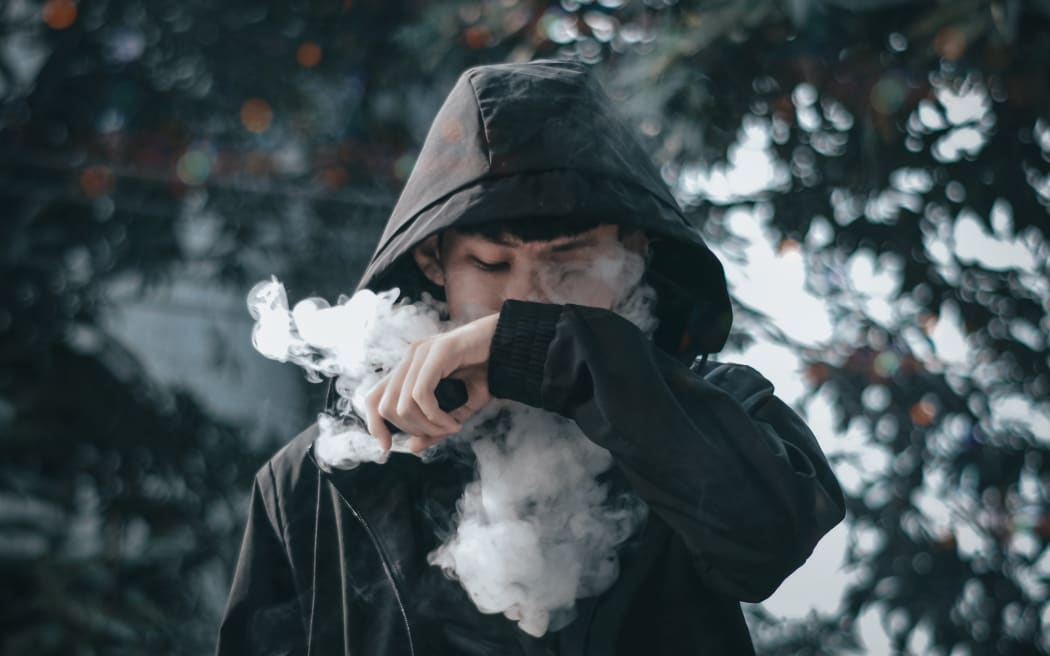
Some schools are installing cameras and vape sensors in the bathrooms] to deter vapers and stop other anti-social behaviour. (file image) Photo: Unsplash
Teenagers vaping at school has become so rampant, some schools are starting to take extra steps to crack down.
Several schools said younger students felt intimidated by groups of older students who vaped inside bathrooms and were forced to hold on or find a different bathroom instead.
That has led to some high schools installing cameras and vape sensors in the bathrooms to deter vapers and stop other anti-social behaviour.
But a privacy expert warned schools should be very careful with how they used the technology.
Invercargill's James Hargest High School principal Mike Newell said vaping in his school's bathroom had become a problem over the past few years, especially for his younger students.
"They didn't feel comfortable going into the toilets because of kids vaping in there. We've had people monitoring toilets and limiting the numbers that go in. We've tried various things over the past few years to hopefully make kids feel that they can go in there."
The latest measure they trialled was vape sensors which made use of technology to catch students red-handed.
"[The sensors] come with cameras that are triggered with the vape sensors, so you can see who's going in and out of the toilets, they also can be linked up to whoever you want in the school's mobile phone, and an alert goes off so you can see where it is."
Newell was thrilled with the results of the trial, saying the sensors and cameras were an effective deterrent.
But he decided against installing the cameras and sensors in all of the school's bathrooms.
"It was very expensive, and also quite labour intensive in terms of monitoring, which tells you there's an issue in itself."
Instead, the school was re-designing its bathrooms, which needed a renovation anyway, to make the communal areas more visible.
But Palmerston North Boys' High school went that step further.
Principal David Bovey said they installed cameras in most of their bathrooms after a survey revealed some of their younger students felt too intimidated to use them.
"They would go to other bathrooms or hold on, which isn't ideal of course."
They told parents what they were going to do, Bovey said.
'Help students make other choices than vaping'
Privacy law specialist Katherine Dalziel said there was an inherent privacy problem with putting cameras in a bathroom, and schools should only consider it as a last resort.
"Have they had complaints from other students? ... how is it affecting them? Have they already issued a directive to people to not smoke in the bathroom? If that is still not changing the behaviour then obviously the school is going to look at technology or other ways to deter students from smoking in the bathrooms."
Schools needed to be transparent with students and parents about where the cameras were going and what they were for, Dalziel said.
"They should actually do that in a consultative way and ask for any feedback from the school community as to whether or not there are any concerns about that, before they make a final decision."
Cameras were only one part of dealing with vaping in schools, Dalziel said.
"It's important the schools have programmes and information in place, to help students make other choices than vaping. That may not be the choice that students make and the schools just have to accept this may not stop the behaviour - it'll simply send it somewhere else."
Bovey also pointed to the power of vape marketing as a concern.
"When you see the vaping shops, they almost look like Apple iPhone stores and so on. They're very good at getting young people into their stores. We know of young people as young as 13, 14, who are addicted to it, and that's got to be a real concern for us."
But at the end of the day, teenagers would always want to experiment, he said.
"You can tell them till you're blue in the face that it's bad for them, but unless something happens to them or one of their friends, they just think they're getting another lecture from an old fart."







